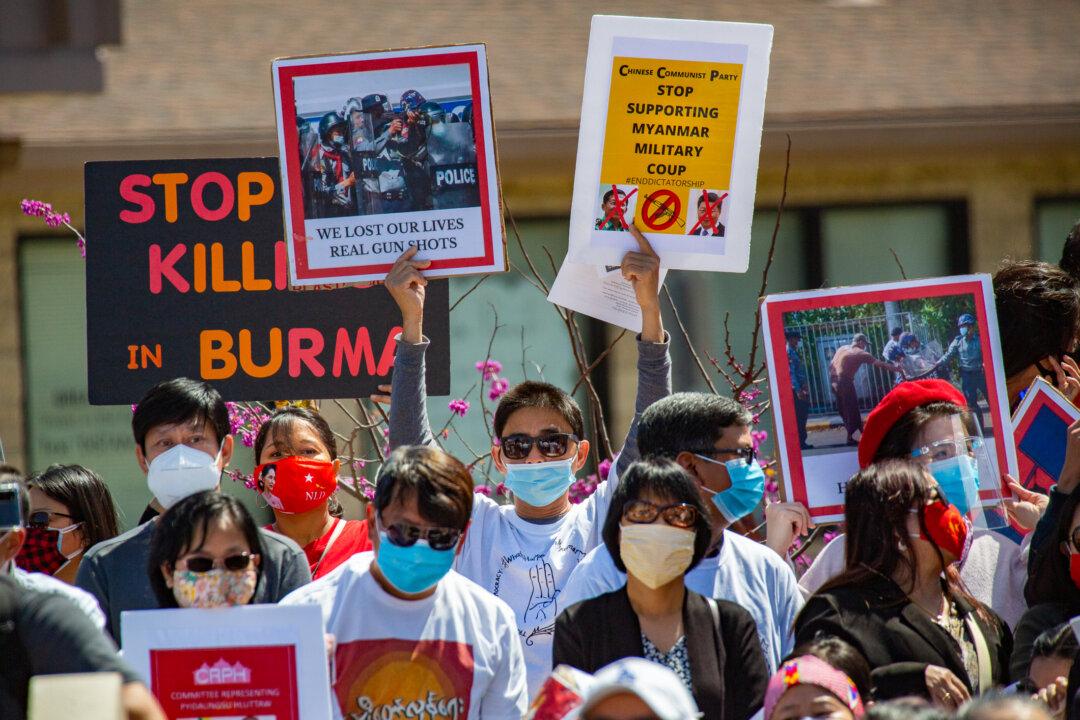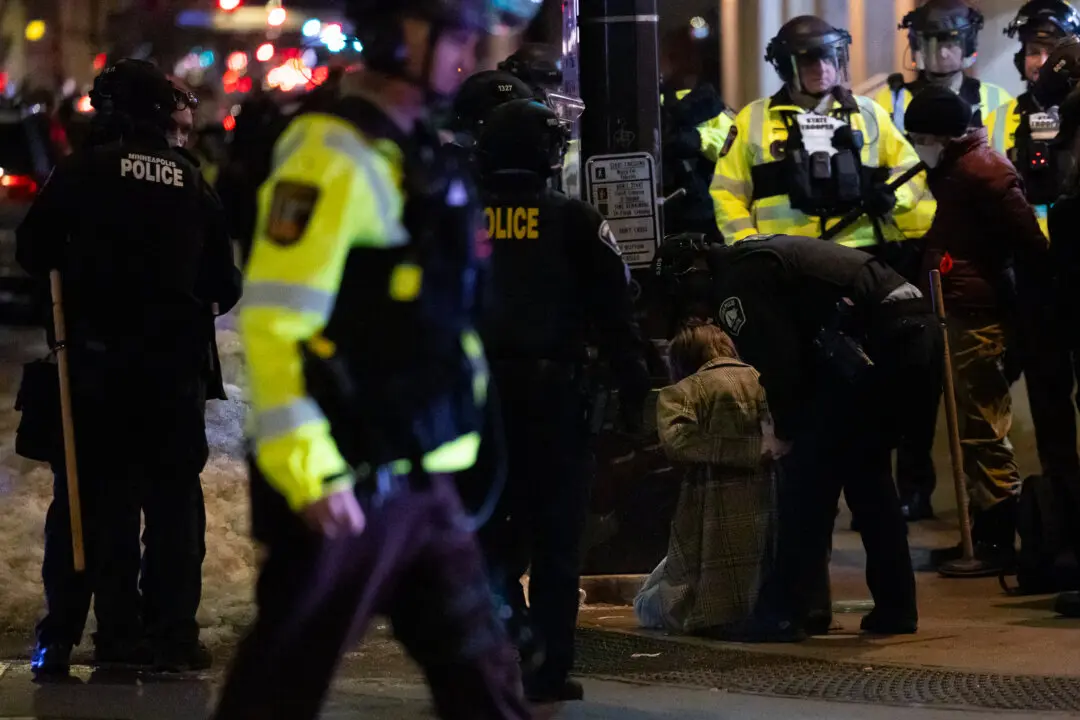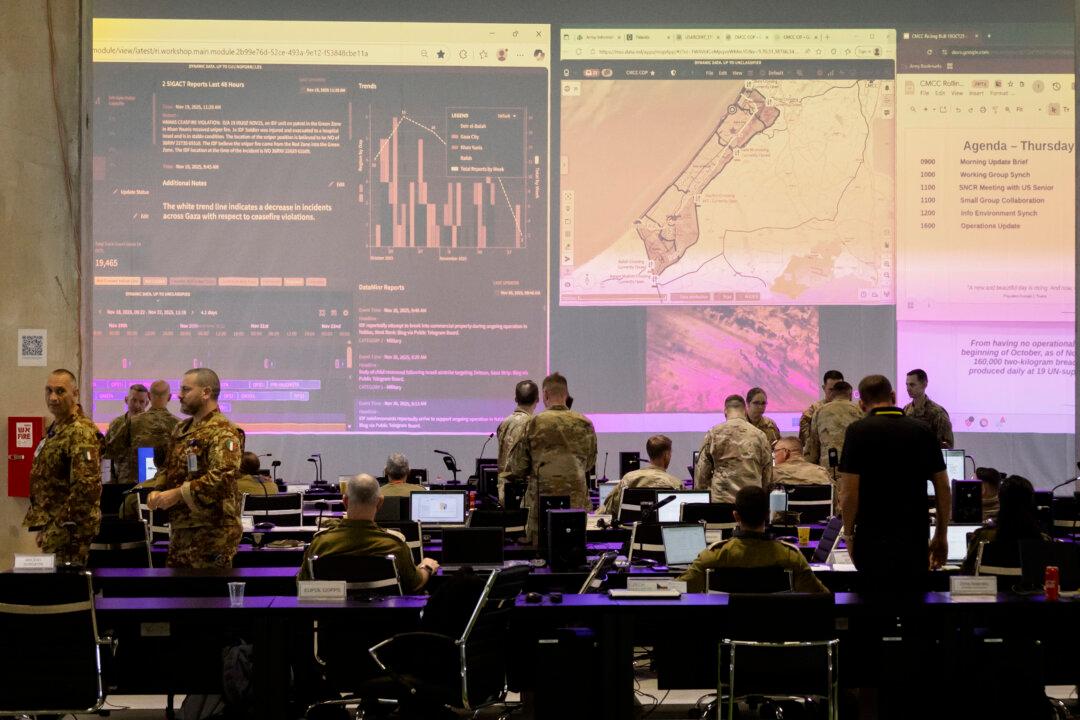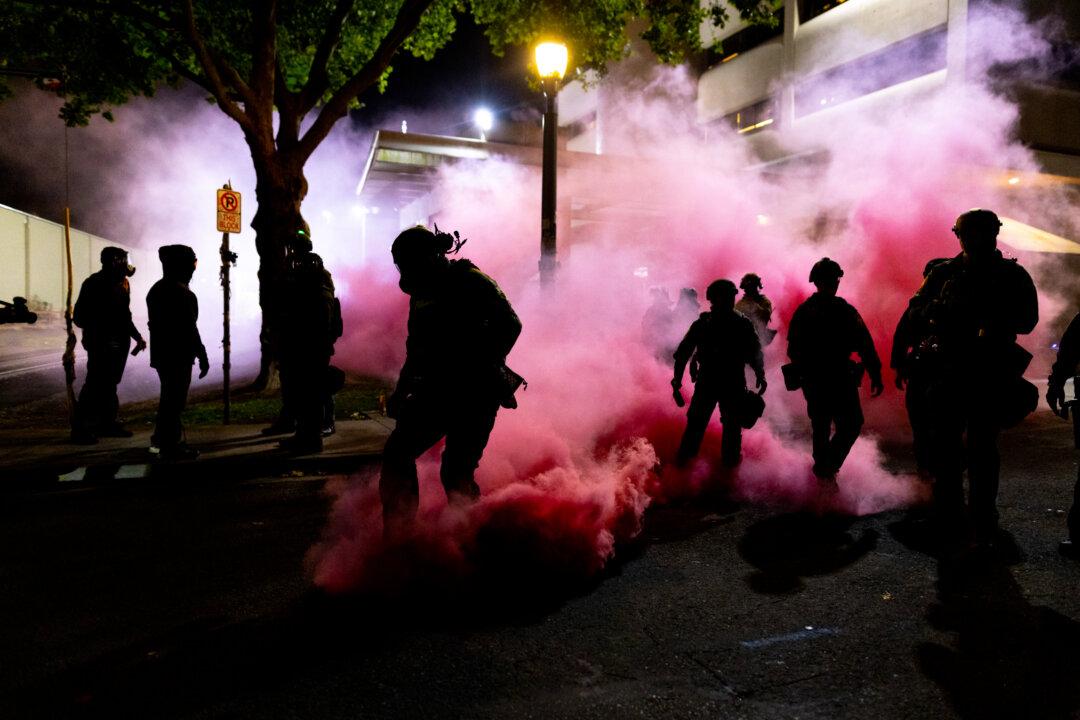A pair of newlyweds based in Southern California who were trapped for weeks in Burma (also known as Myanmar) following the recent military coup say they documented violent attacks against unarmed protesters as they waited to escape the country.
Michael Ghilezan and his wife, Nant, had only been married for 10 days when the military overthrew the democratically elected National League for Democracy (NLD) government on Feb. 1. The couple were waiting to arrange a green card for Nant so she could return to the United States, when the coup struck.




